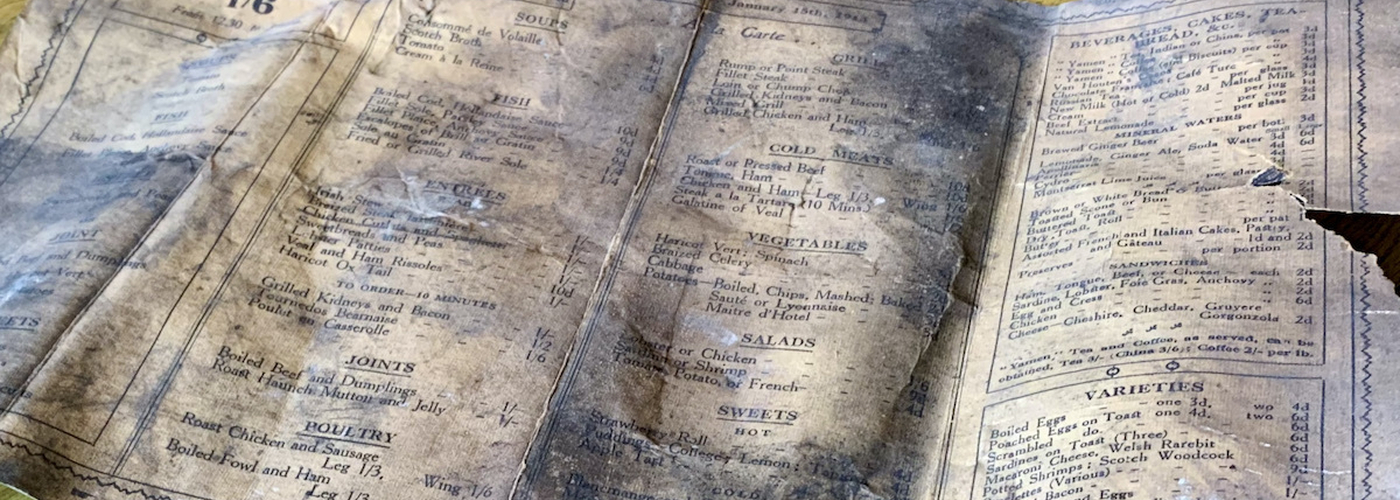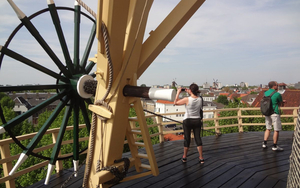From trailblazing cuisine at The Yamen to radical suffragettes, the Bold Street café has many stories to tell
More than 100 years ago, Liverpool’s Bold Street was the equivalent to London’s Bond Street – the city’s opulent and thriving centre along which resided car showrooms, extravagant retail and some of the region’s finest eateries.
It’s really blown our minds that this has been in our building all along, for over a century
One restaurant, The Yamen Café, operated from the same location as LEAF during this time. During renovations to the mezzanine space of LEAF in spring 2021, an incredible historic discovery was made. Eagle-eyed workman, Max Kearns, uncovered a treasure trove of artefacts including a Yamen staff hat, bottles, whist book and playing cards.
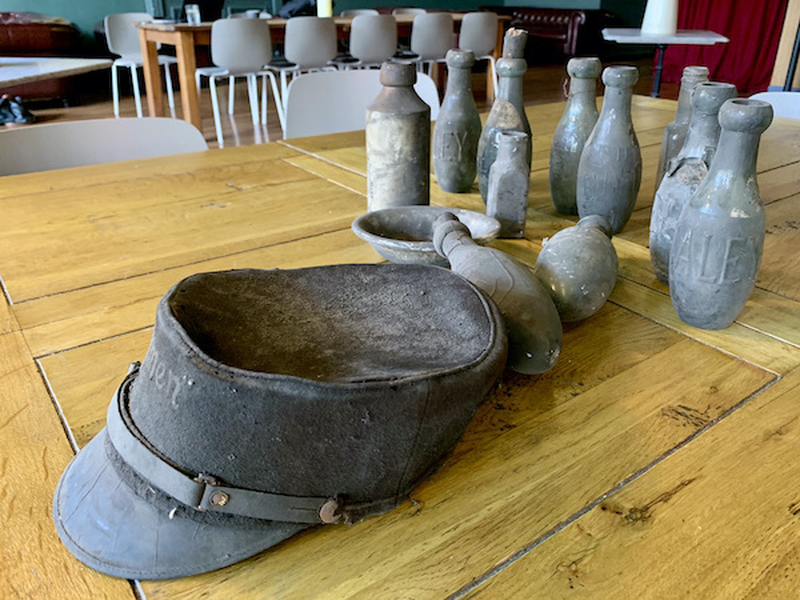
1913 menu is a meaty find
But it was The Yamen menu - dated Wednesday 15 January, 1913 - that really captured the imagination of Natalie Haywood, LEAF’s co-founder.
The Yamen has long been revered by historians as the city’s first vegetarian restaurant, but the discovery of the 1913 menu has shot that theory down. Alongside gourmet dishes such as tournedos bearnaise, consommé de volaille and meringues chantilly with pears, the menu includes sweetbreads, chicken cutlets, lobster patties, veal and ham rissoles, grilled kidneys and steak a la tartare.
Natalie said: “It’s really blown our minds that this has been in our building all along, for over a century. And to see what they were doing then, how forward-thinking and creative as a restaurant, is so inspiring - especially as Liverpool is such a hospitality city.
“We knew our site used to be a restaurant a long time ago, but we had no idea what they were cooking and how advanced it all was. We have always known this is a historic building but having the menu in our hands has made it all feel real.”
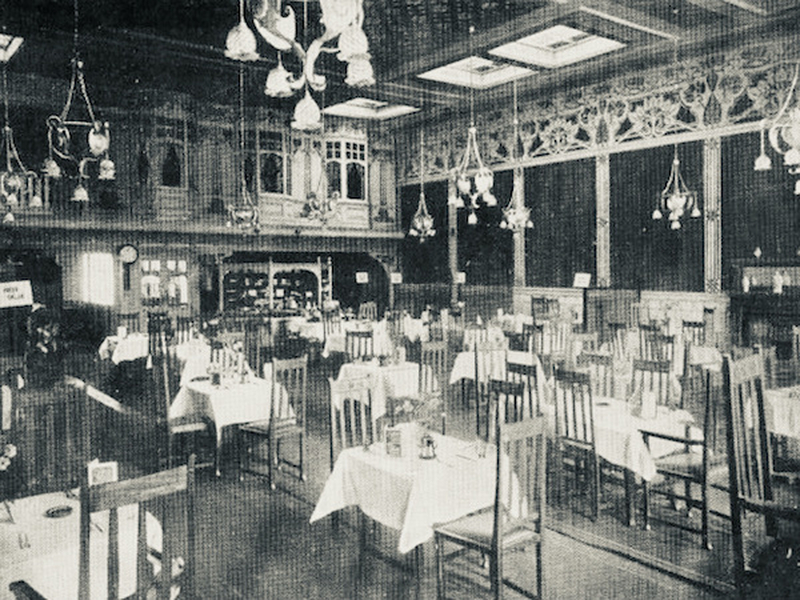
The height of fashion
The LEAF building certainly has a fascinating history. Built in 1828 as a chapel, the upstairs was converted into a theatre in the 1850s called The Queen’s Hall, later the Queen’s Operetta House and then the Bijou Opera House. It’s thought that The Yamen Café took over the upper floor in the early 1890s, and the lower part of the building became Mann & Crosthwaite, a greengrocers, wine and spirit merchant, bakery and confectioners.
A 1904 advert in the Liverpool Daily Post describes The Yamen Rooms at 65 - 67 Bold Street as “the recognised place for dances, dinner parties, whist drives, concerts, lectures. Splendid floor, unequalled catering, large supper room just added.”
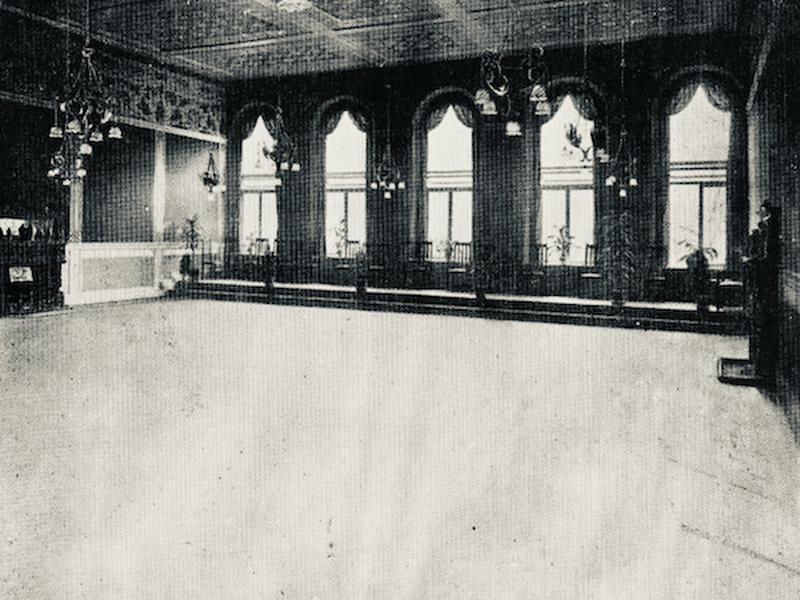
Suffragette city
The venue hosted all manner of events, from music groups like the Arthur Catterall Quartet, to a prestigious reception in 1906 for Keir Hardie, leader of the Labour Party. The Yamen wasn’t just a posh restaurant and event venue - it was also used as a hub for political groups including the women’s suffrage movement.
Liverpool Women's Suffrage Society was set up in 1894 by Edith Bright, Lydia Allen Booth and Nessie Stewart-Brown to promote the enfranchisement of women. As well as educating women (and men) on why they should have the right to vote, the society tried to drum up support by holding events such as poetry, singing and dancing, often at The Yamen Café.
Woodlock was imprisoned seven times, including serving the longest suffragette prison sentence in 1908
Multiple suffrage societies formed across the country during Victorian times, all fighting in different ways to convince the government that women deserved the right to vote. In 1903, the Women’s Social and Political Union (WSPU) emerged, headed by the enigmatic Pankhurst family. After decades of peaceful protest, the WSPU recognised that something far more drastic was needed to get the government to listen.
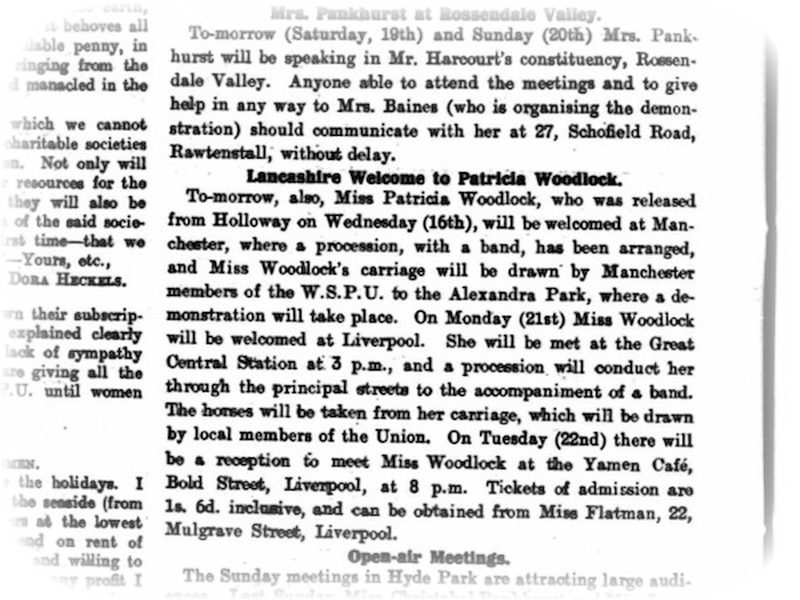
Pankhurst speaks in Liverpool
In 1909, Edith Bright invited Christabel Pankhurst to speak in Liverpool, which considerably boosted the membership. The movement gathered more momentum and in June of the same year, Liverpool-born suffragette Patricia Woodlock made the headlines as she was welcomed at the Yamen Cafe with a grand reception. Woodlock was a founding member of the Liverpool WSPU and imprisoned seven times, including serving the longest suffragette prison sentence in 1908 - solitary confinement for three months.
The harsh sentence caused outrage among supporters and inspired others to join the protests. Her release was celebrated in both London and Liverpool. The newspaper Votes for Women wrote: “She will be met at the Great Central Station at 3pm and a procession will conduct her through the principal streets to the accompaniment of a band. The horses will be taken from her carriage, which will be drawn by local members of the Union.”
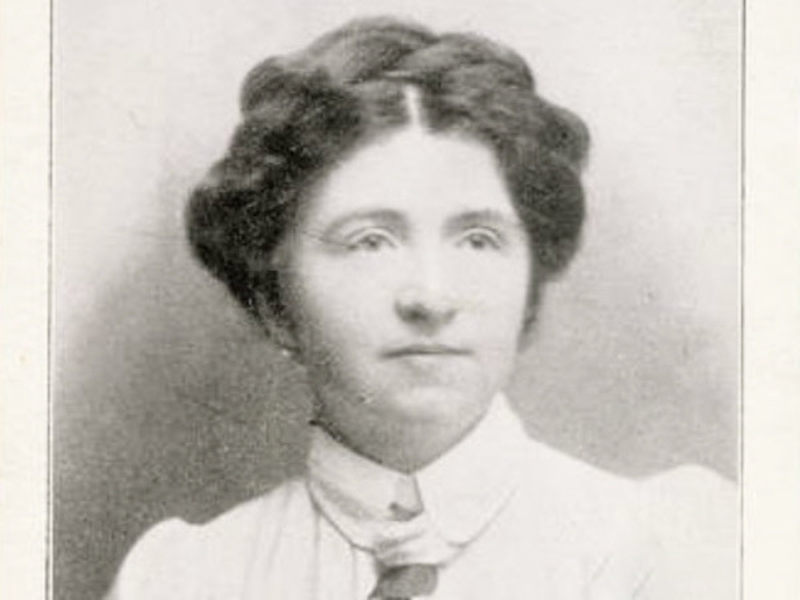
Community hub
It must have been quite a sight to see a carriage being drawn up Bold Street to The Yamen by suffrage supporters. The Reform Act of 1918 passed in February that year, meaning that after decades of campaigning, women had finally won the right to vote in British elections. Even then, meetings of the Women’s Party Campaign continued to be held every Tuesday evening at The Yamen Cafe, with topics for discussion including co-operative housing.
Parallels between The Yamen and LEAF as a culinary and community hub are uncanny and although the site has hosted various other businesses - including Coopers Food Hall, Leatherworld and Microzine - it is LEAF co-founder Natalie Haywood who should be most applauded for her positive impact on the historic building.

Art deco style
Since LEAF moved in in 2007, the Bold Street building has been tactfully renovated while still managing to retain many of the original hallmarks of its past. One of the most striking features is the art deco frontage, built in 1935 for William Watson, a Liverpool-born racing driver who converted the ground floor into a car showroom. Look up at the very top of the facade next time you walk past LEAF and you’ll see that the zigzags are a repeat of his initials W.W.
Natalie said: “The building has become a bit of a museum. We’ve tried to just be as gentle with it as we possibly can. We’re really aware of how much Liverpool people love the building - and we love it as well.
“The menu is a really important find and shows how progressive Liverpool was in a culinary way. People were eating foie gras and lobster before the First World War. I feel like it must have been purposefully left, for there to be so much stuff and we’re taking it as a bit of a good luck omen for the future."
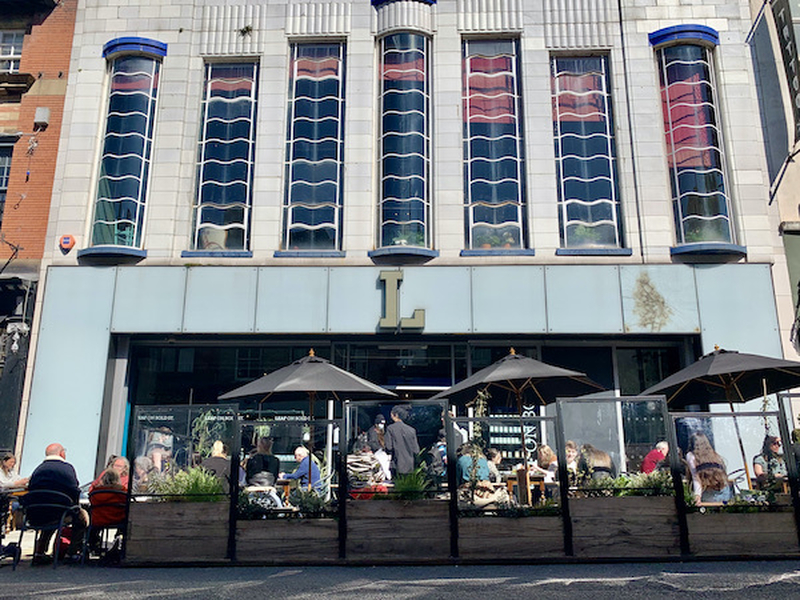
The LEAF team will recreate select dishes from the historic menu on soon to be announced dates, with an opportunity for visitors to experience what Liverpool's food and drink scene was like over 100 years ago. A small selection of dishes will also be made permanent additions to LEAF Bold Street’s menus, in honour of the chance discovery.
Visit LEAF at 65 - 67 Bold Street, Liverpool, L1 4EZ, and follow them on Instagram for the latest updates.





